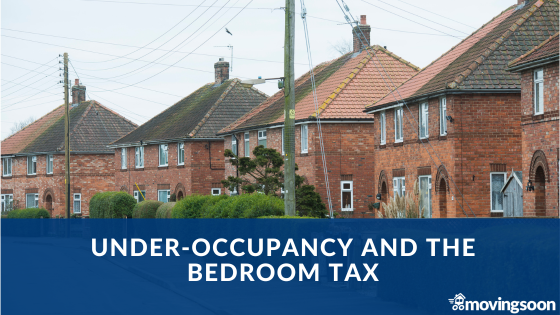Under-occupancy, often referred to as the “bedroom tax,” has become a significant topic of discussion in housing policy. This controversial measure impacts social housing tenants across the UK. It imposes financial penalties on those deemed to have “spare” bedrooms in their homes.
Whether you’re directly affected or simply curious about its implications, this article breaks down the essentials of under-occupancy, the bedroom tax and its associated charges.
What is Under-Occupancy?
Under-occupancy occurs when a household occupies a property with more bedrooms than deemed necessary by government guidelines. The policy primarily targets tenants in social housing. So those renting from housing associations or local councils. The aim is to ensure efficient use of limited housing resources.
The rationale is straightforward. With housing demand outpacing supply, the government encourages tenants to downsize to free up larger homes for families in greater need.
What is the Bedroom Tax?
The “bedroom tax” is the colloquial term for the under-occupancy charge introduced in April 2013 as part of welfare reform under the Welfare Reform Act 2012. This policy affects tenants receiving Housing Benefit or Universal Credit to cover their rent. If a tenant has more bedrooms than they need according to specific criteria, their housing benefit is reduced.
Who Does It Affect?
The bedroom tax applies to social housing tenants of working age (16 to pension age). Pensioners are exempt, even if they live in homes with spare bedrooms.
The number of bedrooms you’re deemed to “need” depends on your household composition. Government guidelines state:
- One bedroom for each adult couple
- One bedroom for every two children under 16 of the same sex
- One bedroom for every two children under 10, regardless of sex
- One bedroom for any other single adult aged 16 or over
- One bedroom for a non-resident carer, if required for overnight care
Any additional bedrooms beyond these allocations are considered “spare,” and the household becomes subject to the bedroom tax.
How is the Bedroom Tax Calculated?
If a household is under-occupying, their housing benefit is reduced by:
- 14% for one spare bedroom
- 25% for two or more spare bedrooms
Here’s an example:
- If your rent is £100 per week and you have one spare bedroom, your benefit is reduced by 14%, meaning you’d lose £14 and receive £86 in housing support.
- For two or more spare bedrooms, you’d lose 25%, reducing your benefit to £75.
Criticisms of the Bedroom Tax
While proponents argue that the policy promotes efficient use of housing stock, critics highlight several issues:
- Limited Availability of Smaller Homes
Many tenants cannot downsize due to a lack of suitable smaller properties. This leaves them stuck paying the bedroom tax without an option to avoid it. - Impact on Vulnerable Groups
The policy has disproportionately affected disabled individuals, separated parents who need space for visiting children and those with specific medical needs requiring additional rooms. - Increased Financial Hardship
For low-income households, even a small reduction in housing benefit can lead to significant financial strain. In some cases pushing them into arrears or forcing them to choose between essentials like food and heating. - Questionable Savings
Critics argue that the savings achieved by the policy are minimal, particularly when offset against the costs of rehousing, legal disputes and increased strain on other social services.
Support and Exemptions
Although the bedroom tax applies broadly, there are exceptions and supports available:
- Discretionary Housing Payments (DHPs): Local councils can provide temporary financial assistance to those struggling to meet their housing costs due to the bedroom tax.
- Exemptions for Certain Groups: In some cases, families with disabled members who require an additional bedroom or foster carers between placements may receive exemptions.
If you’re affected, contacting your local council to inquire about DHPs or other support is essential.
What Can You Do If Affected by the Bedroom Tax?
If you’re facing under-occupancy charges, here are some practical steps to mitigate the impact:
- Seek Financial Assistance: Apply for Discretionary Housing Payments from your local council. This support is usually temporary but can provide relief.
- Downsize: If possible, moving to a smaller property can eliminate the charge. Contact your landlord or housing association to explore rehousing options.
- Take in a Lodger: Renting out your spare room to a lodger can help offset the cost of the bedroom tax. However, ensure you follow your tenancy agreement and inform your landlord.
- Challenge the Decision: If you believe your circumstances justify an exemption, you can challenge the decision. For instance, if you require an additional room for medical equipment or care, seek advice and gather evidence to support your case.
Is the Bedroom Tax Here to Stay?
The bedroom tax remains a divisive policy. Some political parties have pledged to scrap it, citing its disproportionate impact on vulnerable households. Others argue it plays a critical role in addressing housing shortages. For now, tenants need to understand the policy and take proactive steps to manage its effects.
In Summary: Under-Occupancy and the Bedroom Tax
The under-occupancy charge, or bedroom tax, underscores the tension between housing policy objectives and the realities faced by social housing tenants. While it aims to maximize housing efficiency, the financial and emotional toll on affected households cannot be ignored.
If you’re dealing with the bedroom tax, know that support exists. From discretionary payments to downsizing initiatives, resources are available to help you navigate this challenge. Staying informed and seeking advice early can make a significant difference.
For further guidance, consider reaching out to local housing associations, charities like Shelter, or your local council.

